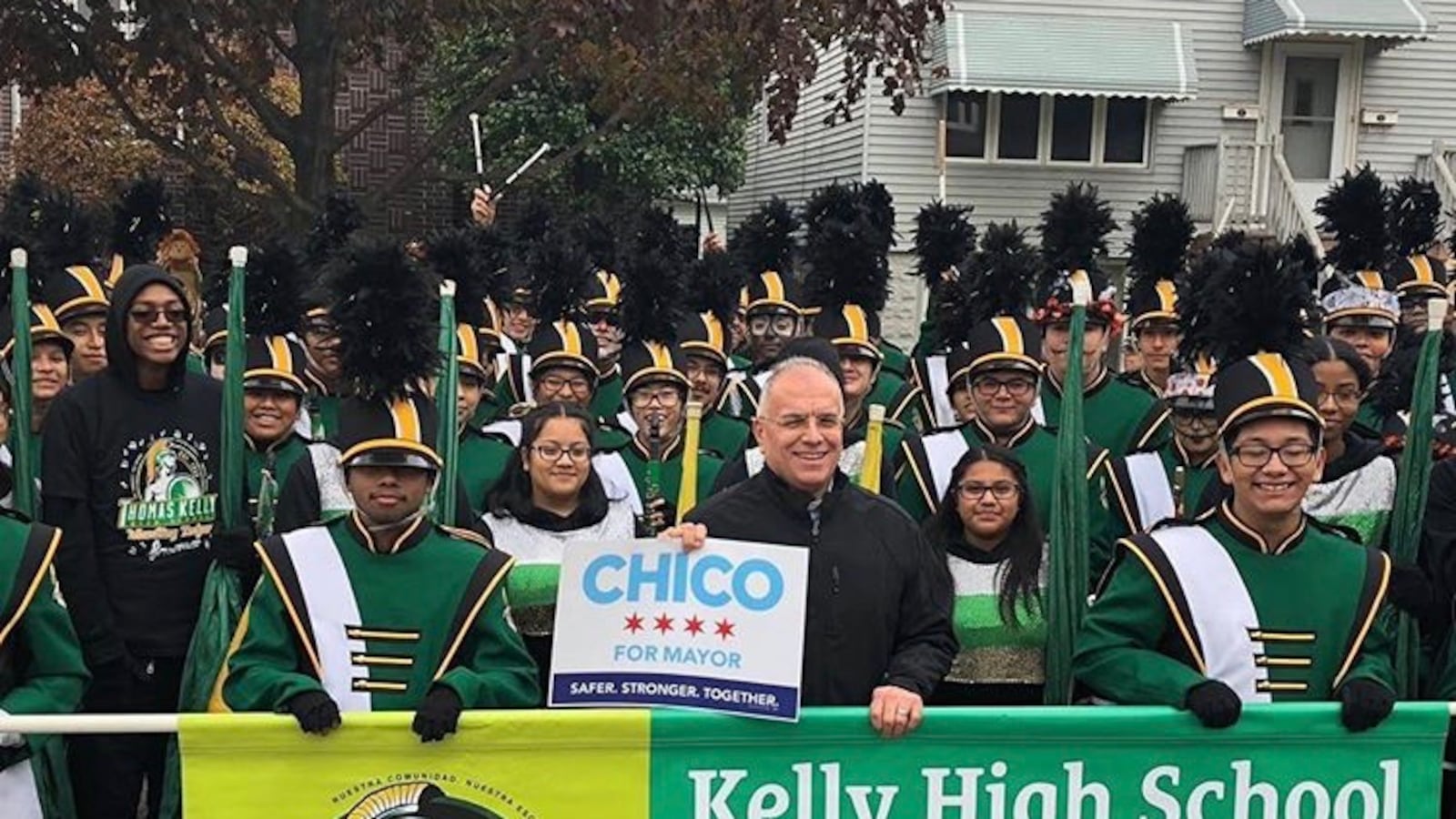Former school board president Gery Chico has said that if elected mayor, he would oversee the largest ever expansion of technical and vocational education at Chicago Public Schools.
That’s a very different approach than the one he presided over during his tenure amid a rush to expand rigorous academic programs like the International Baccalaureate and selective enrollment schools that left a lot of families on the outside looking in, especially in black and Latino communities.
Related: Who’s best for Chicago schools? A Chalkbeat voter guide to the 2019 mayor’s race
“We’re losing people from the city over this issue today,” said Chico, board president from 1995 to 2001. “If an African-American parent doesn’t feel that their child who didn’t get into [selective enrollment high school] Whitney Young is going to be served well by the alternatives — they’re out of here. They leave. They may go to the south suburbs or if the change they seek is more dramatic, they may go to Dallas or Atlanta.”
Chico, who also pledges to open eight new selective enrollment high schools if elected, said he wishes he had anticipated how popular selective enrollment and IB programs were going to be, so that the district could keep up with demand. Just as when Chico ran the school board two decades ago, top academic schools and programs still are disproportionately clustered in wealthier and white neighborhoods, and fewer black and Latino students have access to those schools and programs.
Related: 5 tough questions a new report puts front-and-center for Chicago’s next mayor
Despite some regret and criticism of his tenure at the district from detractors like the Chicago Teacher’s Union, Chico counts balanced budgets, test score gains and scores of opened schools among his accomplishments running the district alongside then-schools chief Paul Vallas, another mayoral contender. After leaving the Chicago Board of Education, Chico went on to serve as board president for the City Colleges of Chicago, and later at the Illinois State Board of Education, experience he says provides him a rare vantage point to steer Chicago schools toward improvements.
If he emerges from the crowded field of candidates in one of the most competitive mayoral elections in recent memory, he said he’d use his power as mayor to open several new trade schools every year for each year of his first term with the goal of spurring Chicago’s “largest ever” expansion of vocational and technical education. His plan is to repurpose closed schools or build new ones to house the specialized career-focused schools.
Related: In one Chicago neighborhood, three high schools offer dramatically different opportunities
Chico wouldn’t say how much it would cost.
He did say he would pay for the plan with budget savings, public-private partnerships with businesses in the trade industry, and surplus economic development dollars from the city’s tax increment finance program. Like other candidates, he’s said he would press downstate lawmakers in the state capitol to fully fund Chicago schools.
“I’m not going to do 20 in one year,” he said. We’re going to phase it in and ramp it up, whether we’re repurposing buildings, or building new buildings, largely with the money of the trade unions. It doesn’t have to break the bank.”
Related: Chicago’s mayoral candidates differ on how they’d improve outcomes for students of color
But Chico’s vocational plan doesn’t mean he’s abandoning the proliferation of rigorous curricula. He said he would expand IB programs from 50 schools to 150.
“This is not one size fits all. Some people want just neighborhood high schools, some people want IB in that high school, some communities like the South and West Sides are clamoring for a selective-enrollment school,” he said. “You have to follow the communities, listen, and then we’ll figure out the best direction based on that dialogue.”
Chicago’s municipal election is Feb. 26.
Are you ready to vote on Feb. 26th? Find everything you need at Chi.vote, a one-stop shop for the Chicago election — Chalkbeat Chicago is a partner.

